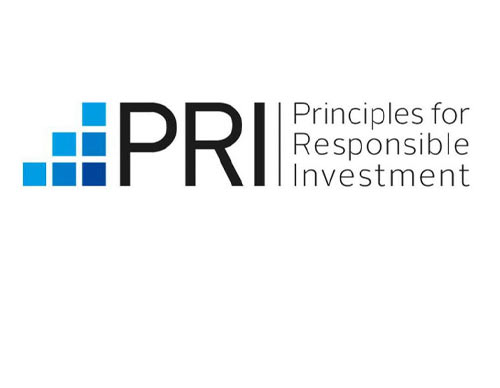News Summary
Lisa Abraham was a featured guest recently on a Principles for Responsible Investment (PRI) podcast focused on how Taskforce for Climate-related Financial Disclosures (TCFD) guidelines are being incorporated into credit risk analysis.
With sustainability being a crucial factor for all businesses - whether for physical or geographic location reasons, or for transitionary purposes such as regulatory changes and customer demand - Lisa highlighted the TCFD guidelines’ applicability across a broad set of sectors. She also discussed how the framework helps structure engagement conversations with the companies we invest in, and some of the ways the TCFD guidelines could be improved.
Hosted by PRI’s Sixtine Dubost, Lisa was joined by Florian Grandolas of sustainable ratings agency EthiFinance. The podcast was part of a larger series focused on integrating ESG principles into credit risk and ratings analysis .
The information provided in this material is not intended to be and should not be considered to be a recommendation or suggestion to engage in or refrain from a particular course of action or to make or hold a particular investment or pursue a particular investment strategy including whether or not to buy, sell, or hold of any of the securities, funds, or asset classes mentioned. Asset allocation could change depending on risk tolerance, investment objective and assets available for investment. It should not be assumed that investments in such securities, funds, or asset classes have been or will be profitable. The investment team will customize portfolios based on the guidelines, requirements and risk tolerance of each client. To the extent specific securities or funds are mentioned, they have been selected by the author on an objective basis and do not represent all of the securities or funds purchased, sold or recommended for advisory clients. The information and data contained in this report are from sources considered reliable, but their accuracy and completeness are not guaranteed.
ESG considerations that are material will vary by investment style, sector/industry, market trends and client objectives. Certain strategies seek to identify companies that we believe may have desirable ESG outcomes, but investors may differ in their views of what constitutes positive or negative ESG outcomes. As a result, certain strategies may invest in companies that do not reflect the beliefs and values of any particular investor. These strategies may also invest in companies that would otherwise be screened out of other ESG oriented funds. Security selection will be impacted by the combined focus on ESG assessments and forecasts of return and risk. These strategies intend to invest in companies with measurable ESG outcomes, as determined by Brown Advisory, and seek to screen out particular companies and industries. Brown Advisory relies on third parties to provide data and screening tools. There is no assurance that this information will be accurate or complete or that it will properly exclude all applicable securities. Investments selected using these tools may perform differently than as forecasted due to the factors incorporated into the screening process, changes from historical trends, and issues in the construction and implementation of the screens (including, but not limited to, software issues and other technological issues). There is no guarantee that Brown Advisory's use of these tools will result in effective investment decisions.
